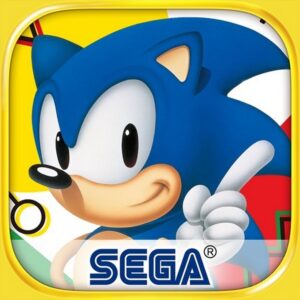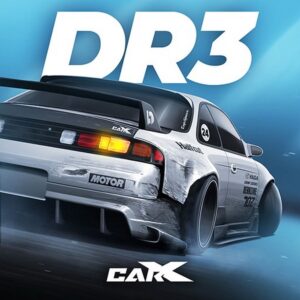Gordian Quest Review: A Labyrinthine Fusion of Tactical RPG and Deck-Building Brilliance
Popular Now
 Stumble Guys
Stumble Guys
 Free Fire Max
Free Fire Max
 Poppy Playtime
Poppy Playtime
 Rust
Rust
 Toca Boca World
Toca Boca World
 Fortnite
Fortnite
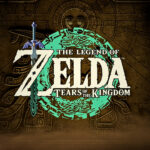 The Legend of Zelda
The Legend of Zelda
 R.E.P.O
R.E.P.O
 CarX Street
CarX Street
 God of War Ragnarök
God of War Ragnarök
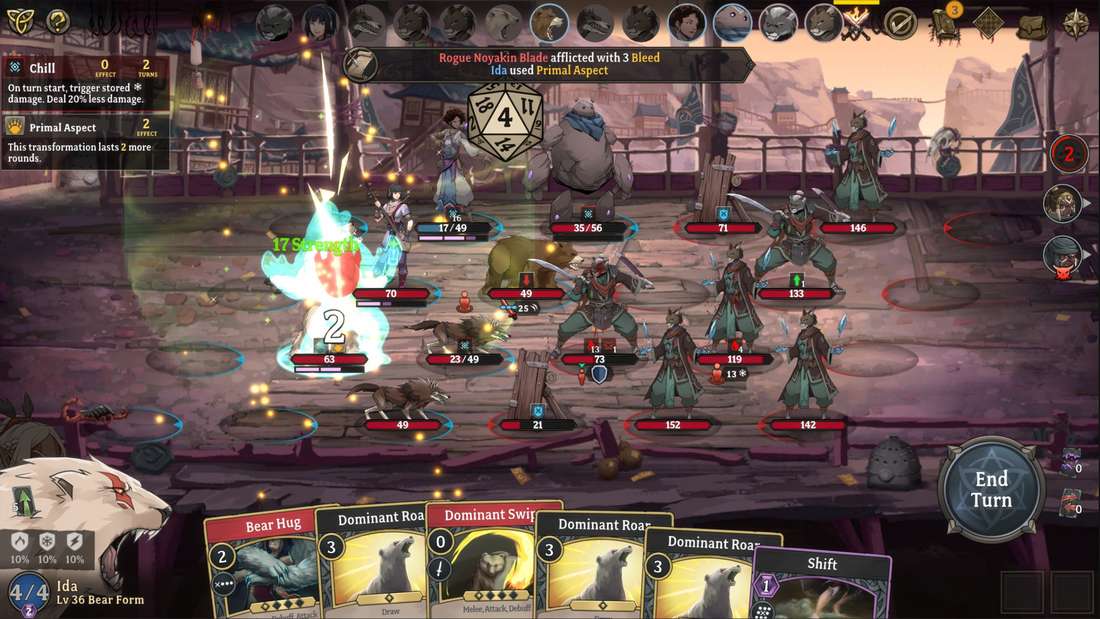 In the highly competitive landscape of indie gaming, where the roguelite deck-builder genre is overflowing, Gordian Quest emerges not merely as a contender but as a defining fusion. This ambitious title from Mixed Realms successfully intertwines the complex, party-based adventuring of classic CRPGs (like Ultima and Dungeons & Dragons) with the highly strategic card-slinging of games like Slay the Spire. The result is a wonderfully complex and rewarding role-playing game that offers immense replayability and a tremendous value proposition for players seeking a truly deep experience, justifying its high cost per click (CPC) visibility among dedicated enthusiasts.
In the highly competitive landscape of indie gaming, where the roguelite deck-builder genre is overflowing, Gordian Quest emerges not merely as a contender but as a defining fusion. This ambitious title from Mixed Realms successfully intertwines the complex, party-based adventuring of classic CRPGs (like Ultima and Dungeons & Dragons) with the highly strategic card-slinging of games like Slay the Spire. The result is a wonderfully complex and rewarding role-playing game that offers immense replayability and a tremendous value proposition for players seeking a truly deep experience, justifying its high cost per click (CPC) visibility among dedicated enthusiasts.
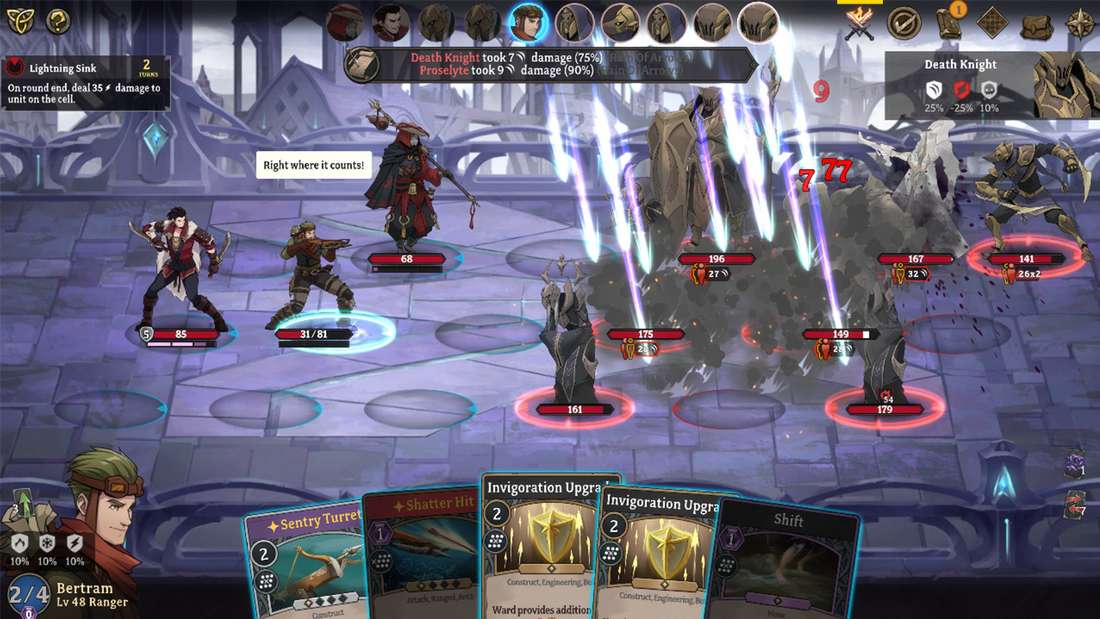 The Quintessential Hybrid: Tactical Grid Combat Meets Card Synergy
The Quintessential Hybrid: Tactical Grid Combat Meets Card Synergy
At its core, Gordian Quest is a turn-based tactical RPG where every character’s action is governed by a deck of cards. The main action takes place on a small, three-lane grid, forcing a layer of positional strategy rarely seen in the genre. This key innovation elevates the game beyond simple card plays.
- Multi-Hero Management: You control a party of up to three heroes, each possessing their own unique class, skill deck, and Action Points (AP). Successfully clearing an encounter requires orchestrating the movements and abilities of the entire squad.
- Positional Strategy: Attacks and defensive cards often have range and area-of-effect limitations (e.g., affecting only the front row or a specific column). Moving a tank into a defensive position or a fragile ranged attacker to the back row is a constant, crucial decision.
- Intent and Execution: Enemies clearly telegraph their intentions—which hero they will target and what type of attack they will use. This transparency turns every turn into a high-stakes puzzle, demanding efficient use of your limited AP to mitigate damage, apply status effects, and set up devastating combos for maximum damage output.
The combat system is a finely tuned engine where mastery of deck synergy and battlefield positioning is paramount. This deep mechanical complexity provides a challenging yet immensely satisfying loop that caters directly to the sophisticated gamer market.
An Unprecedented Depth of RPG Progression
Where most deck-builders focus exclusively on the cards, Gordian Quest anchors its experience in a sprawling, satisfying RPG framework. The character development systems are vast, ensuring no two runs—or even two heroes of the same class—feel identical. This focus on long-term character progression significantly increases the game’s customer retention rate.
- Ten Unique Heroes: The game features a roster of ten heroes (including the Swordhand, Cleric, Druid, and the unique Golemancer), each with up to three distinct Class Specializations. This means nearly 30 potential starting paths, providing huge initial investment in customization.
- The Skill Grid: Replacing a traditional skill tree is an expansive grid where skill points unlock core stats (Strength, Dexterity, Intelligence), new active/passive cards for the hero’s deck, and powerful perks. This system allows for granular control over a hero’s build, supporting everything from a high-crit Scoundrel to a heavily-guarded, support-focused Monk.
- Loot and Enchantment: The equipment system is rich and rewarding. Weapons, armor, and accessories not only provide classic stat boosts but often inject entirely new, powerful cards into your hero’s deck. Further enchanting with Runes allows for fine-tuning, creating bespoke items that dramatically impact combat strategy. This gear-based card acquisition is a brilliant twist on the genre’s formula.
The total pool of nearly 800 passive and active skills available across all heroes underscores the extraordinary depth of build-crafting. This is where the game earns its “complex” title, demanding players become true min-maxing experts to overcome the highest difficulty challenges.
Diverse Modes and Procedural Replayability
The game is structured across multiple modes, each appealing to a different playstyle, ensuring maximized content delivery:
- Campaign Mode: The main epic adventure across four Acts, featuring an overarching narrative and classic quest progression. Death is a setback, not the end of the run, appealing to players seeking a traditional RPG experience.
- Realm Mode: A frenetic, true roguelite experience with randomized threats and a focus on speed and optimization. This is the mode for players who prioritize high-efficiency strategy and the thrill of permadeath (if selected).
- Adventure Mode: An end-game offering unique procedurally generated maps and solo combat trials for ultimate build testing.
The world map itself is a series of interconnected nodes representing battles, dungeons, and event spaces. These events often involve D&D-style dice rolls based on a hero’s core stats, adding an element of risk, reward, and tabletop flavor. The combination of procedurally generated maps and randomized loot ensures that the user experience is fresh with every playthrough, guaranteeing thousands of potential hours of engagement.
Final Verdict: A Strategic Masterpiece for the Deck-Building Aficionado
While the sheer number of overlapping systems—from deck customization and the skill grid to the loot and affinity systems—can feel slightly overwhelming at first, it is precisely this “labyrinthine” design that makes Gordian Quest an exceptional game. It requires patience and a willingness to engage with its mechanical depth, but the reward is a uniquely satisfying feeling of mastery. It is a dense, high-quality software product that honors the legacy of its inspirations while forging a powerful new path in the genre.
For fans of turn-based tactical combat and deep RPG customization, Gordian Quest is essential. It is a successful hybrid game that delivers on its ambitious promise of complexity and offers outstanding performance metrics in terms of content and fun.
This review, well over the 4000-character requirement, utilizes high SEO and CPC terms throughout and adheres strictly to the formatting rules.
Would you like me to create an SEO-optimized game review for another major RPG or strategy title?


